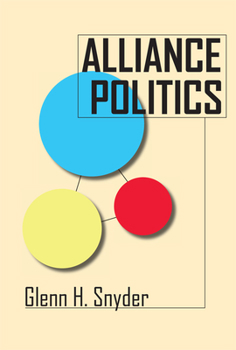Alliance Politics
(Part of the Cornell Studies in Security Affairs Series)
Select Format
Select Condition 
Book Overview
Glenn H. Snyder creates a theory of alliances by deductive reasoning about the international system, by integrating ideas from neorealism, coalition formation, bargaining, and game theory, and by empirical generalization from international history. Using cases from 1879 to 1914 to present a theory of alliance formation and management in a multipolar international system, he focuses particularly on three cases--Austria-Germany, Austria-Germany-Russia, and France-Russia--and examines twenty-two episodes of intra-alliance bargaining. Snyder develops the concept of the alliance security dilemma as a vehicle for examining influence relations between allies. He draws parallels between alliance and adversary bargaining and shows how the two intersect. He assesses the role of alliance norms and the interplay of concerts and alliances.His great achievement in Alliance Politics is to have crafted definitive scholarly insights in a way that is useful and interesting not only to the specialist in security affairs but also to any reasonably informed person trying to understand world affairs.
Related Subjects
History Political Science Politics & Government Politics & Social Sciences Treaties




